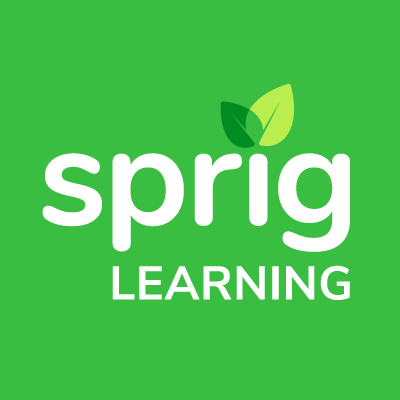Maureen Taylor is Sprig’s Strategic Advisor of Learning and Governance. After earning a B.Ed and M.Ed from the University of Saskatchewan, Maureen has spent 30 years in early years education working as an educator, administrator, superintendent, and consultant.
How many new parents have been told, by well-intentioned family or friends, that they need to do activities with their young children that promote learning? After all, we’ve all heard that a child’s education begins at birth and ultimately goes on forever.
I know it is not always easy to see the impact of our everyday interactions with our children. As a parent and grandparent, I can attest to that. However, as an educator who has read the research and has years of practical experience, I can confidently say that the early years really are pivotal in a child’s educational development. It is my belief that parental involvement is a cornerstone to a child’s education.
Learning at Home is Important
Over five decades of research, and time invested from many institutions across the globe, suggests that students perform better in all aspects of life when their parents are involved in their learning path from an early age. Parents are a child’s first teachers and are by far the most influential people in their life.
“Children spend only 17 percent of their time in school and 83 percent of their time with parents. This out-of-school time is a huge opportunity to have parents collaborate to enhance the educational outcomes for their children.”
– Debbie Pushor, University of Saskatchewan Curriculum Studies Professor
Talking to your children and reading to them before bed may sound like little things, but as it turns out, these little things aren’t so little after all. Everyday activities like questioning, playing, singing and rhyming have an incredible impact on your child’s learning. And, there is sound pedagogical research to back that up. In fact, Snow, Burns & Griffin (1998) suggest that while letter-sound correspondence learned at school is important, the motivation, comprehension, and strong oral language skills children develop through conversation and reading with their parents is even more consequential for strong literacy in the primary years and beyond.
“Research has proven that, early in life, reading to your child every day has a direct positive causal impact on their reading and cognitive skills later in life.”
– Department of Education and Early Childhood Development, Victoria, Australia
Having these positive literacy experiences, especially at home, encourages early learners to become strong and confident readers by the time they hit third grade, which is a key indicator for the prediction of high school graduation.
What Parents Can Do to Support Learning at Home
How parents are involved in developing their children’s oral language and reading skills matters. Research indicates that it is home-based activities that are most closely linked to students’ academic success in school. In Caspe and Lopez’s Seven Research-Based Ways That Families Promote Early Literacy (2017), they suggest the following activities as particularly effective in helping early learners develop literacy skills:
- Read with your child and talk about stories. This supports vocabulary, knowledge, oral language, print awareness, and reading comprehension.
- Share a book enthusiastically and with engagement. This fosters a love of reading and develops a child’s motivation and passion for reading.
- Use rich vocabulary to converse with your child. This increases vocabulary and understanding of language.
- Use your home language. Whether you speak French, Spanish, or Arabic, this encourages the development of language and literacy and promotes a healthier cultural identity.
- Ask open ended ‘why’ questions. This develops knowledge of the meaning of words and their relationships.
- Visit a library. This not only promotes language and literacy development, but it also may provide new learning opportunities.
- Set high expectations for your child’s potential. This encourages curiosity to try new activities and builds resilience in persisting at tasks.
While these are all intentional activities, it is good to be reminded that learning is all around us. By conversing with your child as you bake, count money, and set the table, you are developing math skills. By pointing out familiar signs in your surroundings, you are developing print awareness. By playing ‘I Spy’ and ‘Simon Says’, you are developing memory and attention. And lastly, by reflecting on your day, you are developing vocabulary and language.
Parent engagement encourages meaningful learning in a joyful way. By sharing and talking about different experiences in different environments, we are modeling and partnering in our children’s learning, and exchanging boring experiences for bonding experiences. Parent engagement with their children’s learning matters!
Sprig Home is a curriculum-aligned, at-home version of Sprig’s classroom-based oral language learning program for early learners that shows parents how to enrich the simple things they do, each and every day, to help foster their child’s learning. It is available at no cost for the duration of school closures.
With the launch of Sprig Home, parents have free access to high-quality learning resources for children aged three to six. Since Sprig Home is a derivative of Sprig Language, Sprig’s oral language learning program, parents can ensure that the activities they do at home with their kids not only support learning, but meet school curricular outcomes as well.
Start learning at home today! Sprig Home is free for parents during school closures.

